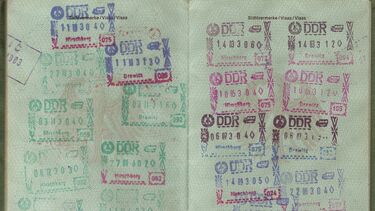Mapping the Humanitarian Visa Policy in Brazil
This project aims to map the concepts, actors, and humanitarian visa policies in Brazil, with the goal of sharing best practices and opportunities on the topic with other stakeholders, including those in the United Kingdom.

Dr Patrícia Nabuco Martuscelli (MRG Co-director), Dr Svetlana Ruseishvili (Federal University of São Carlos, Brazil) and Dr Natalia Cintra (University of Southampton, United Kingdom) co-lead the research project "Mapping the Humanitarian Visa Policy in Brazil", funded by the International Science Partnerships Fund (ISPF) of the Economic and Social Research Council of the United Kingdom Research and Innovation (ESRC/UKRI). This project aims to establish and consolidate a diverse and interdisciplinary network of collaborators to advance knowledge about Humanitarian Visas in Brazil and contribute to the conceptual development of this critical measure in Brazil and beyond.
This research project focuses on humanitarian visas (HVs) in South-South corridors, specifically in Brazil, to explore how these visas are used to protect people fleeing conflict and persecution. While much academic work centres on HVs in European countries, there is limited research on their use in Latin America.
In Brazil, HVs have been granted to four groups: Haitians, Syrians, Afghans, and Ukrainians, through a policy introduced in 2012 and formalised in the 2017 Migration Law. However, the policy lacks clear definitions and its relationship with other protection systems, such as asylum, remains underexplored.
Our goal is to define HVs from a Brazilian perspective by engaging with Brazilian stakeholders, including academics, government representatives, and migrant organisations. This collaborative effort will help us understand the challenges and opportunities within Brazil’s HV policy and its potential for broader application.
More info is available on the research project website: https://sites.google.com/view/humanvisa/home-page?authuser=0


